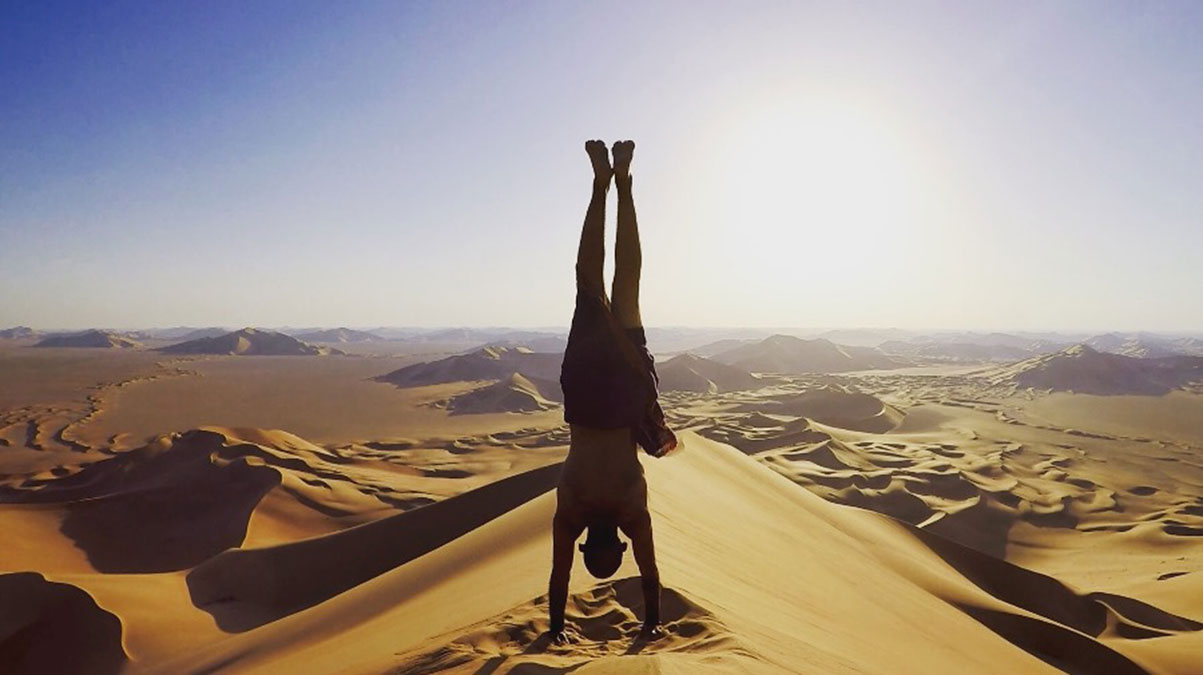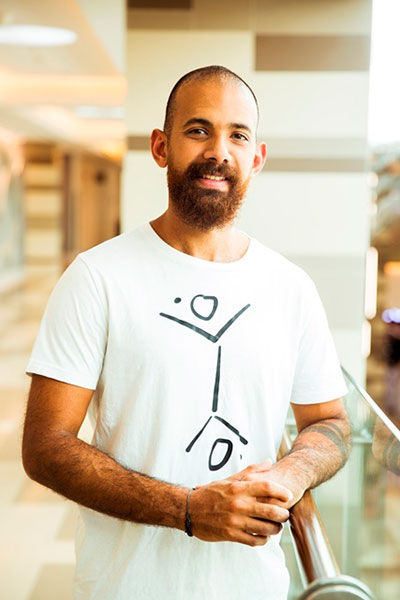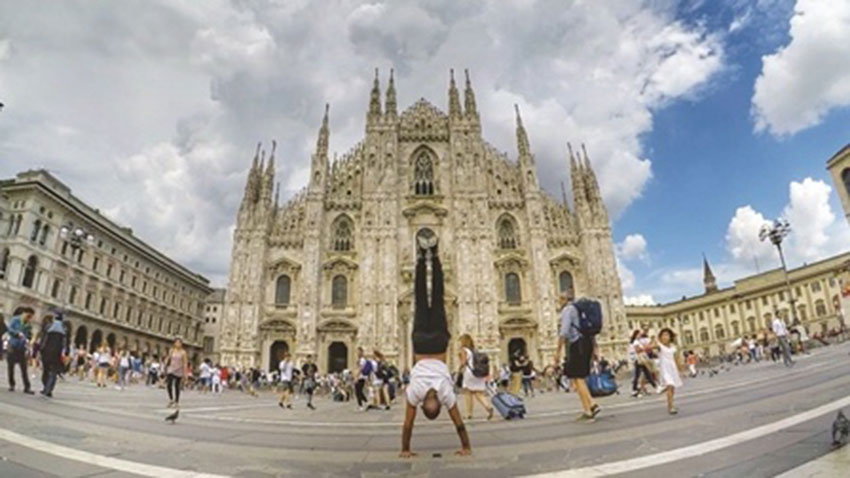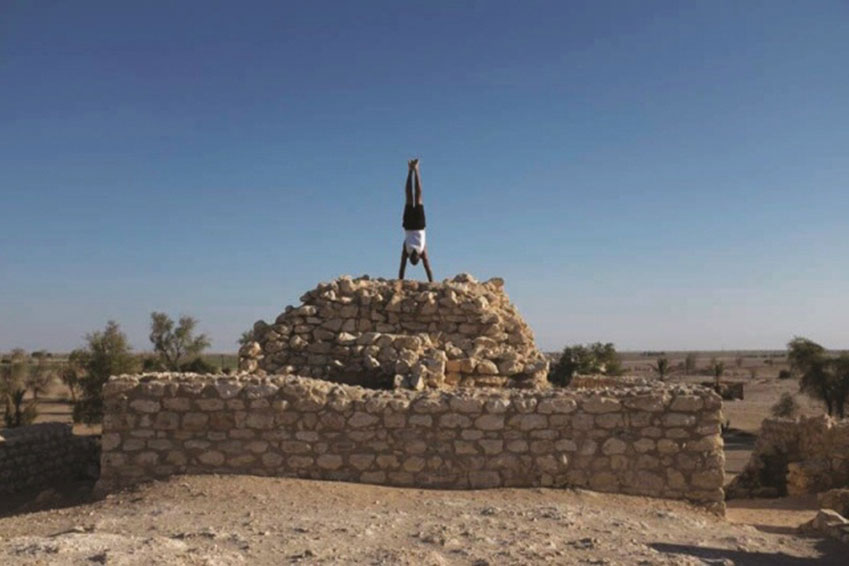What began as an interest to maximize fitness goals and learn a new trick, turned into a lesson in life for Fahad Al Abri, who has, in few years, elevated the acrobatic act of handstand into a motivational channel at various forums, including TEDx.
To him, learning to master handstand and overcoming the fear of falling was an educational experience; one that taught him the importance of moving out of the comfort zone to relive life as it should have been – without the crutches of modernisation. “I realised that handstand is one of those lessons that really teaches us how to stand – in every field, whether it is business, education or sports,” states Fahad, adding that it spurred him to move away from the comfort zone. “It showed me what I am capable of doing…” he muses.
The Beginning
Although Fahad stands on his hands, even walks, with the ease of an acrobat, a handstand is a relatively new concept for him. It was about two years ago that he got hooked on to the act, and mastered it, making people wonder if he had some gymnastics background. A student of yoga and a strong advocate of fitness regimes that target both mind and body, handstand to him was an avenue to challenge his potentials. “It got me thinking,” he recalls. It made him reflect on his physical strengths and the standard of fitness he had attained. “I am a personal trainer* and looking at it from the physical aspect, I analysed my expectations…and I tried. In the beginning, I ended up falling in funny ways, almost every time. Using the wall helped stabilise things, but it stopped my progress. Looking back now, I can state that it was really the constant practice that helped me stand the way I can stand now,” he explains.
The knowledge that handstand is an important practice of many a fitness school inspired him to follow through and understand why it was so very significant in his life. “I realised that handstand requires more than physical strength. You have to be possessed; you have to be determined not to fear to fall,” he observes, holding fear responsible for most people’s reluctance. “Fear will always stop us. Fear will always be the biggest barrier,” he stresses.

He looked beyond fear as a foil and found that, over time, it becomes educational and falling itself becomes a learning process. Once that happens, fear of fall will recede and it will be translated into a deep understanding of self.
Mind and Body
While the mental aspect doesn’t come out starkly, as much as the physical strength in a handstand, it is the most vital facet in pushing one to excel, notes Fahad, stating that handstand taught him how to stand out of his comfort zone. It also created an acute sense of awareness to his surroundings – the connection of the hand with the ground and the flora around. “All human beings, even little children use hands to crawl when they are moving from stage A to B… We have somehow lost this connection; we have replaced it with artificial supports just like chairs, spoons and forks…” he points out.
Seen in that context, handstand is about drawing a fine line between civilisation and practices involving the hand. There will always be a part of our life that goes beyond the dictates of civilisation; one that requires our full potentials as human beings, he observes, stating that people have forgotten the importance of play. “It is so much fun to stand in a different way. It takes you out of the serious mood… People have forgotten that play is a learning process. With modern-day stress and the so-called civilised thinking, people have set limits depending on their age,” he notes.
According to him, seeing things from upside down is all about gaining a new perspective.
“Being able to see things from different perceptions will actually help you in the long run to find solutions and to value things in different way. Many people ask me if, when I am standing on my hands, I am actually lifting the world on my hands. It is all a perception,” he adds.
Interestingly, handstand also taught him to observe little changes in his body – like his hands that seemingly got conditioned. “Our human body is very intelligent – it gets conditioned; it is designed to survive. Civilisation does make us stop relying on our bodies and that kind of negatively affect our postures. It causes aches and pains… We need to ask ourselves, are we living to work or working to live? After all the environment shapes us and we shape the environment,” he asserts.
Handstand Journey
Fahad’s handstand journey started as a way to inspire more people to understand the importance of travel. With an objective of doing handstand in every city around the world, and plans to do it in the Seven Wonders of the World this year, he is all set to accomplish his goals. “If you succeed to stand in a different environment, you will feel fulfilled. I did it at the highest sand dune in Oman and it was completely a phenomenal environment. With handstand, I want to promote the concept of wellbeing, happiness and peace. When you invest in developing a noble message to the community and the globe, people will learn to appreciate things in different ways,” he maintains.
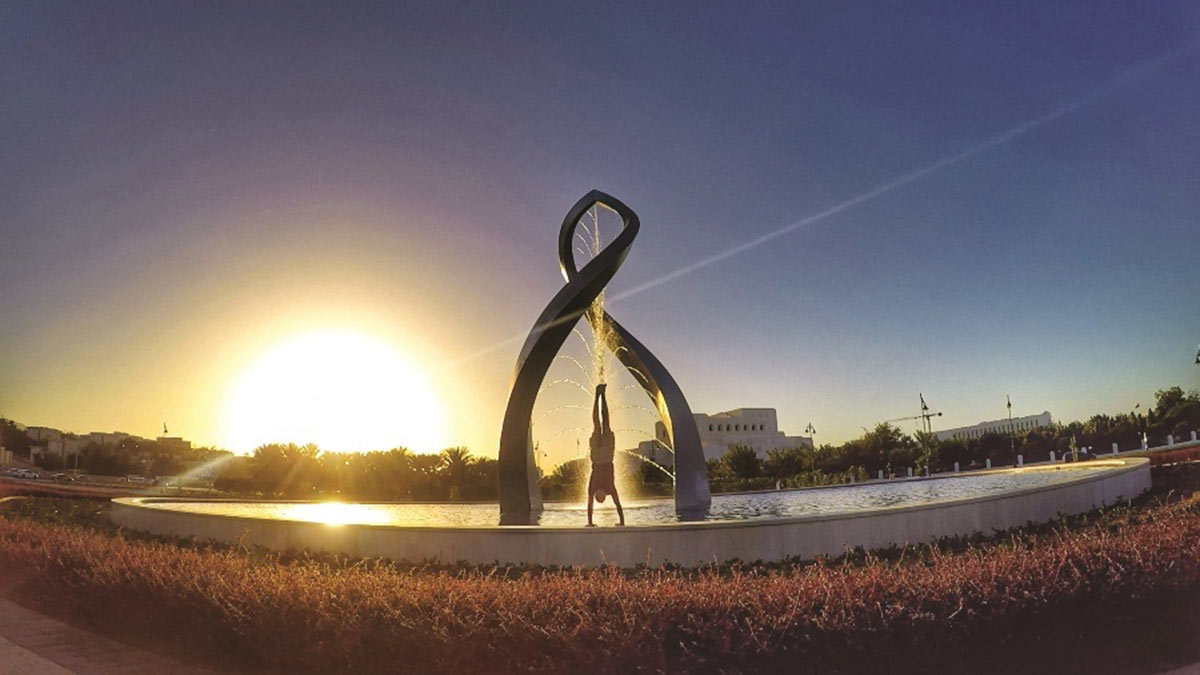
* Fahad is a personal trainer at the Wellness Centre in Al Mouj. You could follow his handstand journey on Instagram @cavemangram
Read about Sununu Muscat’s Artistic Foray in the Art World

